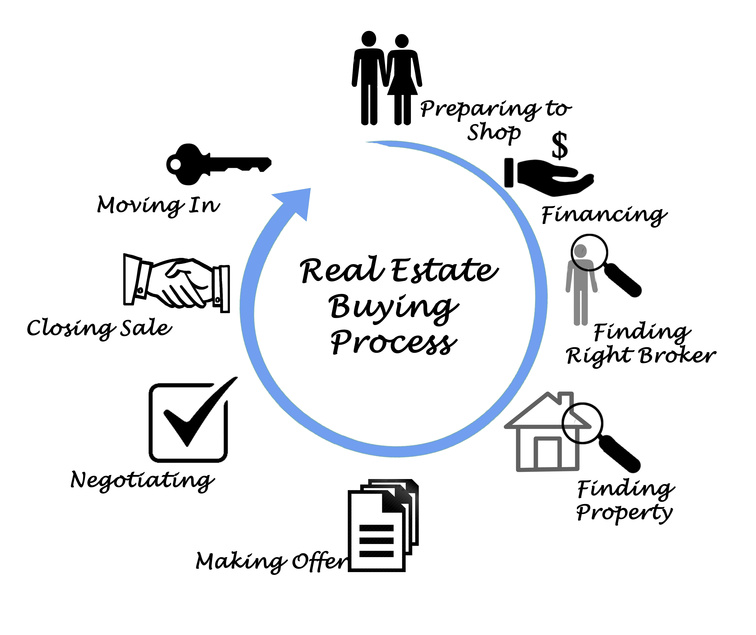How Georgia hard money lenders Help Investors Close Deals in Record Time
The Role of Hard Money Loans in Real Estate Deals: What You Need to Know
Difficult money financings are a critical financing tool in genuine estate purchases. They provide investors fast accessibility to funding, specifically in urgent scenarios. Guaranteed by actual residential property, these loans focus on asset worth instead than the customer's credit report. However, they include notable dangers and costs. Comprehending the subtleties of hard money fundings is essential for any person looking to navigate this intricate financial landscape properly. What aspects should capitalists take into consideration before proceeding?
What Are Tough Money Financings?
Hard money loans offer as an important financing choice in property purchases, specifically for financiers looking for quick accessibility to funding. Unlike standard car loans, tough money lendings are safeguarded by real estate and are mostly based upon the worth of the asset instead of the consumer's credit reliability. These loans are commonly used by private lending institutions or financiers, allowing consumers to bypass lengthy approval processes related to conventional financing.
Difficult cash loans are frequently temporary remedies, with repayment periods varying from a few months to a few years. Because of their expedited nature, they are popular amongst actual estate flippers and those requiring immediate funds for home acquisition or recovery. Rate of interest for tough cash finances tend to be greater than conventional financings, showing the boosted danger loan providers carry out. Generally, tough money fundings fulfill an important duty in the actual estate market, satisfying those who require adaptability and rate in their financing options.
Benefits of Hard Cash Loans
While traditional funding can be sluggish and difficult, hard cash lendings provide several distinct advantages that appeal to genuine estate financiers. One essential benefit is the speed of the financing procedure; car loans can commonly be accepted and moneyed within days, permitting capitalists to confiscate opportunities rapidly. This quick turnaround is specifically helpful in competitive markets where time is important.
Additionally, tough money car loans are mostly asset-based instead than credit-based, meaning that capitalists with less-than-perfect credit can still safeguard funding. This access makes it possible for a wider variety of capitalists to engage in real estate transactions.
Tough cash lending institutions normally have much more versatile terms and problems contrasted to traditional lending institutions, permitting for tailored settlement plans customized to private project requirements. This flexibility can boost an investor's capacity to handle cash money flow properly during renovation or resale phases. Overall, these advantages make tough money loans an engaging selection for many property endeavors.
Possible Downsides to Think About
While tough cash fundings can provide quick funding, potential drawbacks warrant cautious factor to consider. Consumers usually encounter greater rate of interest contrasted to typical funding, which can increase general costs. Furthermore, the shorter repayment terms may push consumers to safeguard refinancing or sell the residential property quicker than anticipated.
Higher Rate Of Interest
Greater rates of interest stand for a significant consideration in hard money financings, particularly in real estate purchases. These loans usually feature rates that are substantially greater than standard funding alternatives, commonly ranging from 8% to 15%. This raised expense can affect the total productivity of a realty financial investment, as debtors might find themselves designating a larger part of their budget plan to rate of interest repayments. Furthermore, the high prices can produce challenges for investors seeking to take advantage of their funding properly. For those who are not prepared for these monetary ramifications, the concern of high-interest repayments can lead to money circulation problems, inevitably affecting the success of the residential property investment. As a result, understanding the ramifications of greater rate of interest is crucial for potential borrowers.
Shorter Payment Terms
Shorter repayment terms are a defining characteristic of hard cash finances, which can present numerous challenges for consumers. Generally ranging from 6 months to three years, these terms require consumers to pay off the lending quickly, frequently resulting in financial strain. The stress to create returns within a restricted timeframe can press debtors to rush home restorations or sales, potentially compromising the quality of the investment. Furthermore, the requirement of a speedy leave strategy might restrict choices for refinancing or marketing, causing greater dangers. Consumers should very carefully consider their economic capacities and market problems to stay clear of back-pedaling these fundings, which can bring about the loss of the collateralized property.
Exactly How Hard Cash Finances Work
Tough money fundings operate with an unique framework that prioritizes property value over creditworthiness. The approval process is generally swift, allowing customers to accessibility funds quickly contrasted to typical funding. Additionally, an assessment of interest prices reveals that hard money financings commonly carry higher prices, reflecting the boosted risk taken find out by loan providers.
Lending Framework Clarified

In actual estate transactions, recognizing the framework of tough cash car loans is necessary for capitalists looking for fast financing. Difficult money fundings are normally protected by genuine estate, with the property acting as collateral. These car loans normally entail higher rates of interest contrasted to traditional financing, showing the raised threat taken by loan providers. The loan terms are typically brief, usually ranging from 6 months to three years, facilitating quick accessibility to capital. Lending amounts can differ significantly, commonly depending upon the building's worth instead of the consumer's credit reliability. Financiers gain from the expedited approval process, enabling them to seize financial investment opportunities without delay. Generally, the framework of difficult money financings accommodates those requiring fast, adaptable financing options in real estate markets.
Authorization Refine Overview
The authorization process for hard cash fundings is unique from traditional borrowing approaches, mostly focusing on the collateral instead of the borrower's debt profile. Lenders evaluate the value of the building being utilized as collateral, guaranteeing it fulfills their requirements for risk analysis. As soon as a residential or commercial property is identified, borrowers send a financing application that consists of information concerning the building and the meant use of funds (Georgia hard money lenders). The lending institution conducts a fast evaluation and may call for extra documentation, however the process is typically expedited compared to traditional finances. Approval typically takes place within days, permitting customers to accessibility funds quickly. This structured technique is helpful genuine estate financiers seeking fast funding solutions for acquisition or renovation projects
Rates Of Interest Contrast
While tough money finances offer quick access to funds, their rate of interest prices are commonly greater than those of traditional mortgages. Borrowers can anticipate rates ranging from 8% to 15%, depending on the lender and the specifics of the deal. On the other hand, standard home loan rates typically fall in between 3% and 6%. The higher prices related to hard cash car loans mirror the enhanced danger lending institutions take, as these finances are commonly protected by the building itself instead than the customer's creditworthiness. This indicates that while tough cash finances can facilitate swift financing genuine estate investments, they can likewise bring about substantially greater costs over time, making it necessary for debtors to carefully examine their monetary circumstance before proceeding.
When to Utilize Tough Money Fundings
When is it sensible to contemplate difficult cash car loans in realty purchases? Investors usually think about these car loans in situations where conventional financing is either not practical or inaccessible. For example, difficult cash finances can be beneficial for properties requiring fast acquisition, such as repossession auctions or troubled residential or commercial properties needing instant restorations.
In addition, investor seeking to profit from time-sensitive possibilities, like turning homes, may discover difficult money fundings beneficial due to their expedited approval procedure. Borrowers with less-than-perfect debt or non-traditional homes may also opt for hard cash financing, as lenders primarily concentrate on the property's worth instead than the debtor's monetary history.
Tips for Choosing a Difficult Cash Lender
Just how can capitalists guarantee they pick the appropriate difficult cash lender for their property demands? Thorough research is necessary. Financiers must examine possible lending institutions by reviewing their customer, experience, and credibility testimonies. It is a good idea to seek lending institutions who specialize in the type of residential or commercial property being funded, as this can improve the likelihood of desirable terms.
Next, comprehending the lending institution's problems and terms is significant. Investors ought to ask about passion rates, charges, and payment timetables. Clear communication is crucial; lenders ought to want to clarify any type of unpredictabilities.
Additionally, reviewing the lender's funding rate and versatility can be valuable, particularly in open markets. Capitalists should additionally consider developing a connection with the lender, as a good connection can promote smoother deals. Ultimately, seeking advice from industry experts or realty representatives can offer more insights and recommendations, ensuring a knowledgeable choice.
Often Asked Inquiries
Can Hard Cash Loans Be Utilized for Industrial Properties?
Hard money car loans can indeed be used for business homes, using quick funding alternatives for capitalists - Georgia hard money lenders. These finances are more tips here usually safeguarded by the property itself, allowing customers to access funds without traditional loaning needs
What Is the Regular Loan-To-Value Proportion for Hard Money Loans?
The typical loan-to-value proportion for difficult money finances generally varies from 60% to 75%. This ratio differs based on the residential property kind, lender plans, and private borrower conditions, mirroring the higher risk connected with these loans.
Are Difficult Money Financings Offered to Newbie Buyers?
Difficult cash fundings can be available to newbie homebuyers, though terms vary by loan provider. These car loans typically this hyperlink have higher rate of interest and shorter settlement durations, making them a much less conventional choice for brand-new buyers.
How Promptly Can I Close on a Hard Cash Lending?
The speed of shutting on a difficult money financing can differ, however commonly it varies from a few days to a number of weeks, relying on the lender's needs and the consumer's financial scenario. (Georgia hard money lenders)
What Files Are Required to Request a Difficult Money Loan?

Unlike conventional financings, tough cash car loans are safeguarded by real home and are primarily based on the worth of the asset rather than the debtor's creditworthiness. Rate of interest rates for hard money car loans have a tendency to be greater than conventional finances, reflecting the boosted risk loan providers embark on. The authorization process for difficult money financings is distinct from conventional loaning approaches, mainly concentrating on the collateral instead than the debtor's credit profile. The greater prices associated with difficult cash fundings reflect the raised risk loan providers take, as these finances are frequently protected by the residential or commercial property itself rather than the consumer's creditworthiness. To use for a difficult cash financing, borrowers commonly require to offer property info, a financing application, proof of earnings, credit rating background, and recognition.